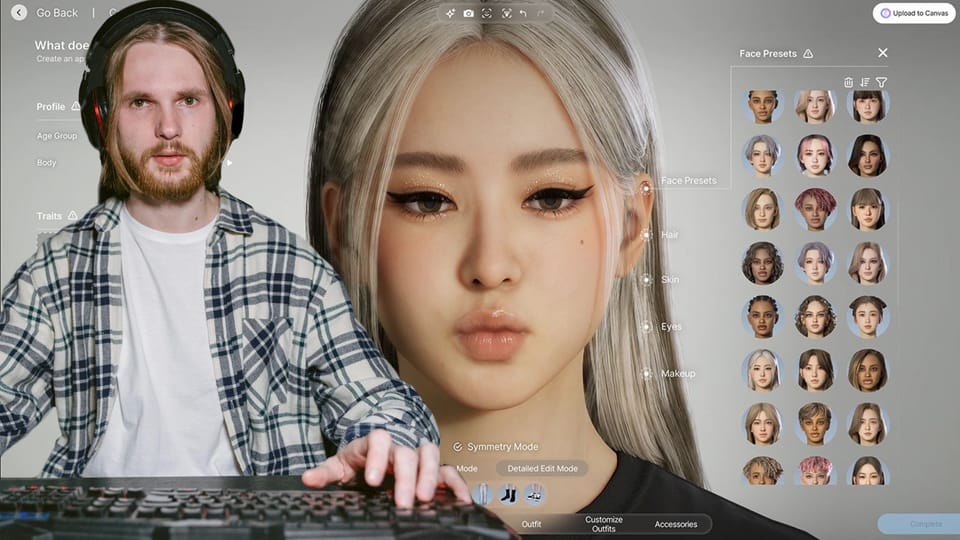Digital Identity Formation: The Psychology Behind Game Avatars

It's apparent that today's youth values their digital identity.
According to Roblox, "Over half, (56%) of Gen Z says styling their avatar is more important to them than their physical style."

For context, Roblox is an online platform that lets users create, share, and play games made by other users.
It’s not just one game, it’s millions of user-generated experiences.
Self-Discrepancy Theory

In psychology, there is this theory called self-discrepancy.
It's the concept of humans holding multiple versions of themselves: the actual self, the ideal self, and the ought self.
And with video games, these avatars gives us access to embody those versions.
We can amplify traits we like, hide ones we don't, and experiment with new identities without judgement or real world consequence.
There is no barrier to be who you want.
The Proteus Effect: When Avatars Influence Behavior
Have you ever purchased a new shirt, got a haircut, or got a new pair of shoes?
You may have felt more confident due to these new changes in your appearance.
Researchers Nick Yee and Jeremy Bailenson coined the Proteus Effect to describe how people behave differently based on the avatars they embody.
For example, users assigned taller avatars in virtual environments became more confident and aggressive in negotiations.
Thus, the specific customization of the avatar not only represents you but also changes you.
Control, Expression, and Escapism
Customizing an avatar gives us control in environments where we usually have none.
It also provides creative expression.
Roblox users, for example, spend an average of $123 on avatar styling over time.
For many Gen Z players, dressing up their digital self is more important than real-world fashion.
As mentioned earlier, over 50% of Gen Z would rather invest in their avatar's appearance than their own.
This reflects a deeper trend: our identities are increasingly digital and customization is how we anchor them.
Cultural Signals in Virtual Spaces

Just like in real life, digital fashion and avatar design are used to communicate status, culture, and subculture.
- In Fortnite, having an old, rare skin signals that you’ve been around.
- In Roblox, limited-edition items flex your Robux budget.
- In The Sims, mods and custom content let players represent ethnic, gender, or niche identities not supported by the base game.
Avatar design is not neutral. It’s social signaling.
The Digital Human
While it may seem like humans just want to look cool while gaming, there is more to it that meets the eye.
Avatars help with humans discovering things such as:
Who do you want to be seen as?
What do you want to express?
What do you wish you could change?
Customization taps into identity, aspiration, and agency.
In a world where more of us live online, that makes it deeply human.
About: Human UX is a knowledge resource dedicated to understanding human behavior in the digital age. Our goal is to make complex psychological, social, and cultural concepts accessible, giving people the tools to think critically, discuss openly, and apply agency.